This blog is here to inspire artists, writers, and roleplayers! If you need a starter, something to doodle, or need to break your writer's block you've come to the right place! We also house resources for writers and artists alike! Feel free to submit your own prompts and ideas as well!
Don't wanna be here? Send us removal request.
Text
sometimes you need dialogue tags and don't want to use the same four


176K notes
·
View notes
Text
120 ULTIMATE LIST OF CHARACTER FLAWS. Writers save this!
1. Moral Flexibility - Adapts their ethics to fit the situation, often justifying questionable actions as necessary.
2. Cognitive Dissonance - Holds two conflicting beliefs or values and struggles to reconcile them, leading to inner turmoil.
3. Overempathy - Feels others’ emotions too intensely, leading to burnout or an inability to make objective decisions.
4. Intellectual Arrogance - Dismisses others’ ideas as inferior, believing their own intellect is superior.
5. Chronic Overthinking - Analyzes situations to the point of paralysis, unable to take decisive action.
6. Restless Wanderlust - Has a constant desire for change or travel, leading to instability in relationships or careers.
7. Savior Complex - Feels compelled to “save” others, often to the detriment of their own well-being or others’ autonomy.
8. Emotional Vampirism - Drains others emotionally, needing constant validation or attention.
9. Righteous Indignation - Becomes excessively angry over perceived injustices, often alienating others.
10. Altruistic Self-Destruction - Sacrifices themselves for others to an unhealthy degree, often leading to self-neglect.
11. Pathological Modesty - Downplays their own achievements to the point of self-sabotage or invisibility.
12. Incapable of Solitude - Feels an intense fear of being alone, leading to codependent or unhealthy relationships.
13. Over-Rationalization - Justifies every action or decision, even when it’s clearly flawed, to avoid guilt or responsibility.
14. Constant Self-Sabotage - Subconsciously undermines their own success due to deep-seated fears or insecurities.
15. Misplaced Loyalty - Stays loyal to people or causes even when it’s harmful or undeserved.
16. Ethical Rigidity - Follows their moral code to the letter, unable to adapt to complex or gray situations.
17. Need for Obscurity - Prefers to stay unnoticed or in the background, avoiding recognition or responsibility.
18. Involuntary Aloofness - Appears distant or disinterested, often without meaning to, leading to misunderstandings.
19. Fear of Mediocrity - Terrified of being ordinary, they constantly strive for greatness, often leading to burnout.
20. Rejection Sensitivity - Overreacts to criticism or perceived slights, often withdrawing or lashing out.
21. Conflict Avoidance - Avoids confrontation at all costs, leading to unresolved issues and resentment.
22. Over-idealization of Others - Puts people on pedestals, only to be deeply disappointed when they don’t meet expectations.
23. Chronically Unfulfilled - No matter what they achieve, they always feel something is missing, leading to constant searching.
24. Compulsive Truth-Telling - Feels compelled to speak the truth, even when it would be kinder or wiser to remain silent.
25. Overactive Imagination - Sees threats or possibilities where there are none, leading to anxiety or missed opportunities.
26. Faux Humility - Pretends to be humble but secretly craves admiration or validation.
27. Micromanagement - Needs to control every detail, often suffocating others or hindering their own progress.
28. Anachronistic Thinking - Clings to outdated beliefs or practices, struggling to adapt to modern realities.
29. Over-Reliance on Routine - Becomes anxious or lost without their routines, struggling to adapt to change.
30. Selective Memory - Remembers events in a way that suits their narrative, often distorting the truth.
31. Paradoxical Fear of Success - Desires success but subconsciously fears the changes or responsibilities it might bring.
32. Compassion Fatigue - Once empathetic, now numbed or indifferent due to overwhelming exposure to others’ suffering.
33. Overwhelming Nostalgia - Lives in the past, unable to move forward or appreciate the present.
34. Unyielding Perfectionism - So focused on flawlessness that they struggle to complete tasks or accept anything less than perfect.
35. Epistemic Arrogance - Believes they know everything worth knowing, dismissing the possibility of learning from others.
36. Excessive Hedonism - Pursues pleasure to the point of neglecting responsibilities or moral considerations.
37. Over-Cautiousness - So afraid of making mistakes that they rarely take action, leading to missed opportunities.
38. Idealistic Naivety - Believes the world should operate according to their ideals, often clashing with reality.
39. Ambition without Direction - Desires greatness but has no clear path or plan, leading to frustration and failure.
40. Emotional Transference - Projects unresolved emotions onto others, often misinterpreting their intentions or actions.
41. Overdependence on Routine - Becomes anxious or lost without their routines, struggling to adapt to change.
42. Misplaced Guilt - Feels responsible for things outside of their control, leading to unnecessary self-blame.
43. Fear of Being Ordinary - Constantly strives to stand out, often at the expense of authenticity or well-being.
44. Chronic Indecisiveness - Struggles to make even simple decisions, constantly second-guessing themselves.
45. Faux Cynicism - Pretends to be jaded or cynical as a defense mechanism, while secretly caring deeply.
46. Romanticization of Suffering - Believes that suffering is noble or meaningful, often rejecting happiness or comfort.
47. Selective Compassion - Empathetic towards some but completely indifferent or cold to others, often based on biases.
48. Avoidant Optimism - Avoids negative thoughts or situations, clinging to an unrealistic positivity that ignores real problems.
49. Fear of Abandonment - Clings to relationships out of fear of being left alone, often leading to unhealthy dynamics.
50. Overidentification with Work - Sees their job as their entire identity, struggling with self-worth outside of work.
51. Excessive Altruism - Sacrifices their own needs to help others, often to their own detriment.
52. Self-Imposed Isolation - Withdraws from others out of fear of rejection or misunderstanding, leading to loneliness.
53. Over-Analysis Paralysis - Overthinks every situation to the point of being unable to make decisions or take action.
54. Eternal Romantic - Sees the world through a lens of idealized love, often leading to disillusionment or heartbreak.
55. Emotional Incontinence - Struggles to control their emotions, often overwhelming others with their intensity.
56. Fear of Aging - Obsessed with youth, they go to great lengths to deny or hide the aging process.
57. Intellectual Cowardice - Avoids challenging their own beliefs or ideas, sticking to what they know out of fear of change.
58. Emotional Hoarding - Holds onto past hurts or grudges, unable to let go and move on.
59. Unquenchable Curiosity - Always needs to knw more, often prying into others’ lives or crossing boundaries.
60. Romantic Escapism - Uses fantasy or daydreams as a way to avoid dealing with reality, leading to detachment.
61. Masochistic Tendencies - Deliberately seeks out situations that cause them pain or discomfort, believing they deserve it.
62. Incurable Wanderer - Can never settle down, always moving on to the next place or experience, leading to rootlessness.
63. Dependency on Validation - Needs constant approval or praise from others to feel good about themselves.
64. Constant Self-Reinvention - Continuously changes their identity or persona, never settling on who they truly are.
65. Moral Masochism - Finds satisfaction in self-punishment or guilt, often holding themselves to impossible standards.
66. Faux Bravado - Pretends to be fearless or confident to hide deep-seated insecurities or fears.
67. Over-romanticization of the Past - Idealizes past experiences, believing that things were better back then, leading to dissatisfaction with the present.
68. Chronic Hedging - Never fully commits to decisions or actions, always leaving themselves an escape route.
69. Fear of Stagnation - Constantly needs to be doing something or moving forward, fearing they’ll become irrelevant or bored.
70. Over-Attachment to Objects - Places excessive sentimental value on material possessions, struggling to let go.
71. Emotional Stoicism - Refuses to show or acknowledge emotions, leading to repression and eventual breakdowns.
72. Self-Flagellation - Constantly punishes themselves for perceived failures or mistakes, often disproportionate to the actual events.
73. Fear of the Unknown - Terrified of what they can’t predict or control, leading to anxiety or avoidance of new experiences.
74. Romantic Pessimism - Believes that love or relationships are doomed to fail, leading to self-sabotage or cynicism.
75. Intellectual Purism - Believes in the superiority of “pure” intellectual pursuits, often dismissing practical or emotional concerns.
76. Existential Dread - Obsesses over the meaning (or lack thereof) of life, leading to paralysis or despair.
77. Involuntary Nonconformity- Desires to fit in but can’t help standing out or going against the grain, often feeling alienated.
78. Self-Imposed Martyrdom - Puts themselves in a position of suffering or sacrifice, believing it’s their duty or fate.
79. Idealized Self-Image - Clings to an unrealistic self-concept, struggling to accept their flaws or limitations.
80. Compulsive Honesty - Feels compelled to always tell the truth, even when it’s hurtful or inappropriate.
81. Over-Reliance on Technology - Becomes helpless without modern conveniences, struggling to cope with real-world challenges.
82. Moral Exhibitionism - Shows off their ethics or principles to gain admiration or moral superiority, often insincerely.
83. Perpetual Student Syndrome - Always learning but never applying knowledge, avoiding real-world responsibilities.
84. Emotional Osmosis - Absorbs others’ emotions so deeply that they lose track of their own feelings or needs.
85. Pathological Frugality - So obsessed with saving money or resources that they miss out on life’s joys or opportunities.
86. Obsessive Self-Improvement - Never satisfied with themselves, constantly striving for unattainable perfection.
87. False Modesty - Pretends to be humble while fishing for compliments or validation.
88. Uncontrolled Impulsiveness - Acts on whims or impulses without considering the consequences, leading to chaos or regret.
89. Chronic Hedonism - Lives only for pleasure, often to the detriment of their long-term happiness or relationships.
90. Overly Abstract Thinking - So focused on big ideas or concepts that they lose touch with reality or practical concerns.
91. Romantic Idealism - Believes in a perfect love or relationship, often leading to disappointment or disillusionment.
92. Selective Altruism - Only helps others when it suits them, often ignoring those who don’t fit their criteria.
93. Pathological Shyness - So shy or introverted that they struggle to function in social situations, often missing out on opportunities.
94. Moral Superiority - Believes they are more ethical or righteous than others, often looking down on those who don’t share their views.
95. Over-identification with a Role - Sees themselves only as their job, family role, or social identity, losing sight of their true self.
96. Chronic Complaining - Constantly finds something to complain about, often bringing others down or creating a negative atmosphere.
97. Faux Stoicism - Pretends to be emotionally strong or unaffected, while secretly struggling with deep emotional turmoil.
98. Addiction to Drama - Thrives on conflict or chaos, often creating drama where there is none to feel alive or important.
99. Obsessive Collecting - Gathers possessions, knowledge, or experiences obsessively, often unable to let go or move on.
100. Inflexible Optimism - Refuses to acknowledge negative possibilities, often unprepared for setbacks or challenges.
101. Contrarianism - Always takes the opposite stance just to challenge others, often without genuine conviction.
102. Emotional Projection - Attributes their own feelings or issues onto others, often leading to misunderstandings.
103. Compulsive Heroism - Feels the need to be seen as heroic or brave, even in situations that don’t call for it.
104. Spiritual Narcissism - Uses spirituality as a way to feel superior to others or to avoid personal flaws.
105. Self-Defeating Humor - Constantly makes jokes at their own expense, using humor to deflect serious issues.
106. Identity Fluidity - Frequently changes their identity or beliefs to fit in with different groups, losing a sense of true self.
107. Overattachment to the Past - Can’t move on from past successes or failures, allowing them to define their present.
108. Pseudointellectualism - Pretends to know more than they do, using complex language or ideas to impress others.
109. Overidealization of Youth - Places youth on a pedestal, often dismissing the value of experience or aging.
110. Refusal to Accept Help - Rejects assistance from others, believing they must do everything on their own, even to their detriment.
111. Emotional Manipulation - Uses guilt, pity, or other emotions to control or influence others, often without realizing it.
112. Inconsistent Values - Holds contradictory beliefs or morals, leading to confusion or hypocrisy in their actions.
113. Obsession with Legacy - So focused on how they’ll be remembered that they neglect the present or make unwise choices.
114. Excessive Eagerness to Please - Goes out of their way to make others happy, often at the cost of their own needs or principles.
115. Emotionally Guarded - Builds walls around their feelings, making it difficult for others to get close or understand them.
116. Selective Memory - Chooses to remember events in a way that favors them, often distorting the truth.
117. Overattachment to Authority - Relies heavily on rules or leaders, struggling to make decisions independently or question authority.
118. Fear of Vulnerability - Avoids showing weakness or asking for help, leading to isolation or burnout.
119. Intellectual Detachment - Approaches everything with cold logic, often ignoring the emotional or human side of situations.
120. Obsession with Control - Needs to control every aspect of their life and others’, often leading to stress or strained relationships.
BONUS🔥
CREATE YOUR CHARACTERS WITH DEPTH TODAY! Don't settle for shallow, forgettable characters—elevate your writing with the ultimate character worksheet.
This template isn't just about characters; it’s your all-in-one tool for worldbuilding, writer planning from idea generation to publishing, roadmaps, synced databases, and series planning. It’s the ultimate character and worldbuilding bible you’ve been waiting for.
Available now! Use code "F4NTASY" to get an incredible 75% off! This offer won’t last long, so grab yours now before it’s too late!



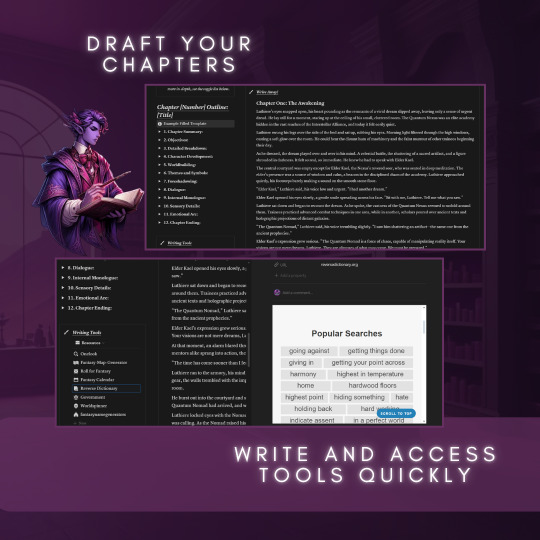

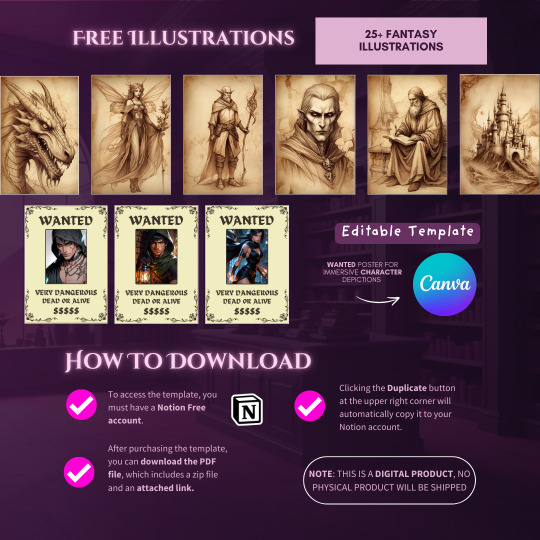
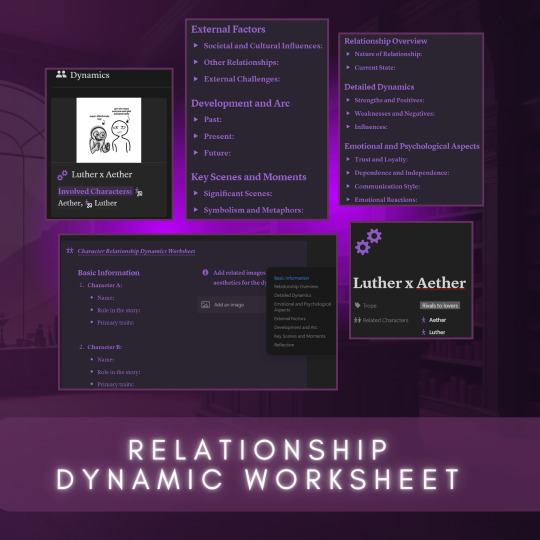
#on writing#writeblr#character design#character development#character flaws#writer#writing#writer things#writerblr#writerscorner
9K notes
·
View notes
Text
12 Emotional Wounds in Fiction Storys
Betraying a Loved One. Your character made a choice, and it backfired, badly. They betrayed someone close to them, maybe on purpose, maybe by accident. Now, the guilt’s eating them alive. They might try to fix things, but can they even make up for what they did?
Guilt Over a Past Mistake. They made a mistake, one that cost someone else. Maybe it was reckless, maybe it was a dumb decision, but now it haunts them. They can’t stop thinking about it, and no matter how hard they try to make things right, the past keeps pulling them back.
Survivor’s Guilt. Imagine surviving something awful, an accident, a disaster, but someone else didn’t make it. Now your character is stuck asking, “Why me? Why am I still here?” They push people away, convinced they don’t deserve to be happy or even alive.
Feeling Powerless. Your character is trapped, maybe in an abusive home, a toxic relationship, or just in life itself. They feel stuck, with no control over their own future.
Being Wrongly Accused. They didn’t do it. But no one believes them. Your character has been falsely accused of something serious, maybe even a crime and now they’re fighting to clear their name. It’s not just about proving their innocence, though. They’re also battling the pain of being abandoned by people who were supposed to stand by them.
Public Humiliation. They’ve just been humiliated in front of everyone, maybe it’s a video gone viral, or they were betrayed by someone they trusted. Now, they can’t even look people in the eye.
Living in Someone’s Shadow. No matter what they do, it’s never enough. Someone else, a sibling, a friend, a partner, always shines brighter. They feel stuck in that person’s shadow, invisible and overlooked.
Abandoning a Dream. They had big dreams, but somewhere along the way, life got in the way, and now they’ve given up. Maybe it was because of fear or circumstances beyond their control, but the loss of that dream has left them feeling empty.
Childhood Trauma. Something happened to them when they were young, something painful that still affects them today. Whether it was abuse, neglect, or a significant loss, the trauma follows them into adulthood, shaping how they see themselves and the world.
Being an Outsider. They’ve never felt like they fit in, whether because of their background, their personality, or something else. They long for acceptance but fear they’ll never find it.
Struggling with Addiction. They’re caught in a destructive cycle, whether it’s with substances, behaviors, or even people. The shame and struggle to break free from addiction are real and raw.
Living with Chronic Illness. They’re living with a chronic illness or disability, and it’s not just the physical challenges that weigh them down, it’s the emotional toll, too. Maybe they feel isolated, or like they’re a burden to others.
8K notes
·
View notes
Text
The BBC is releasing over 16,000 sound effects for free download
180K notes
·
View notes
Text
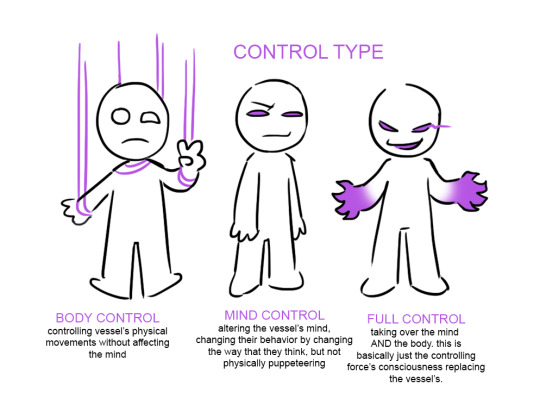
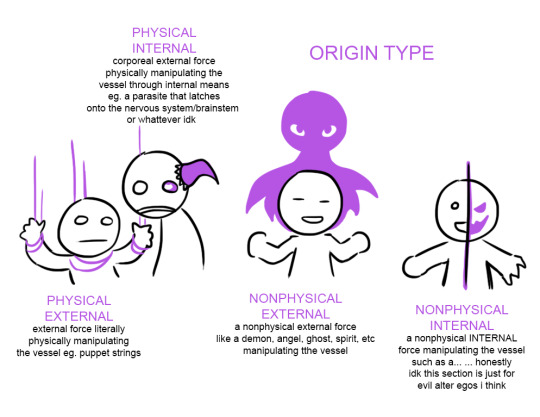
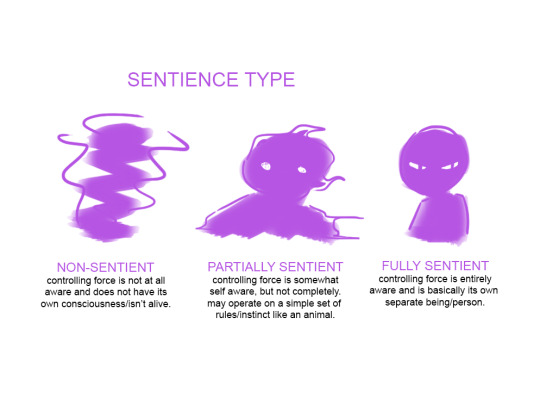
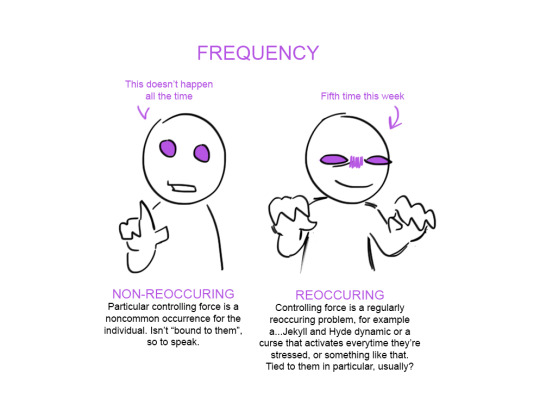
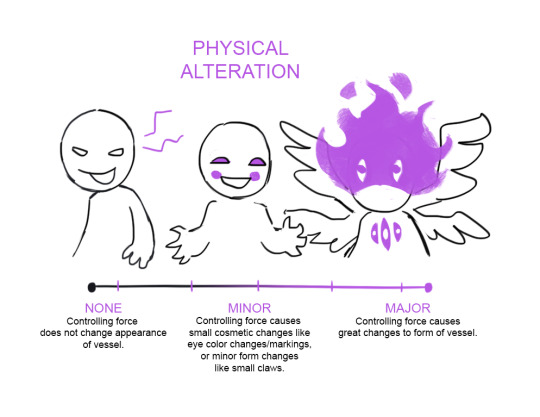
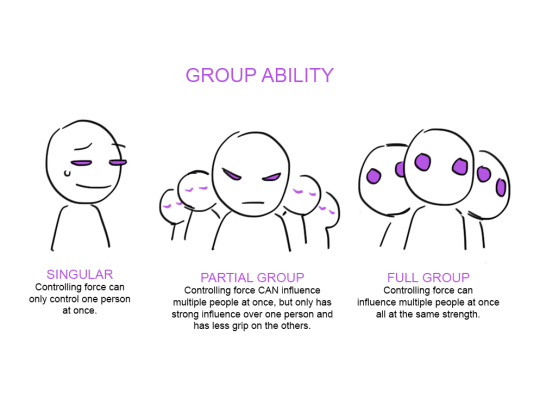
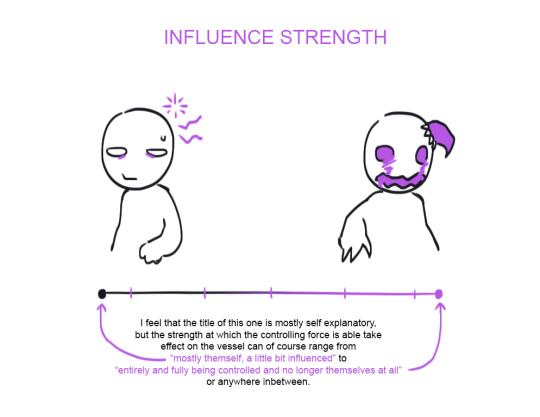
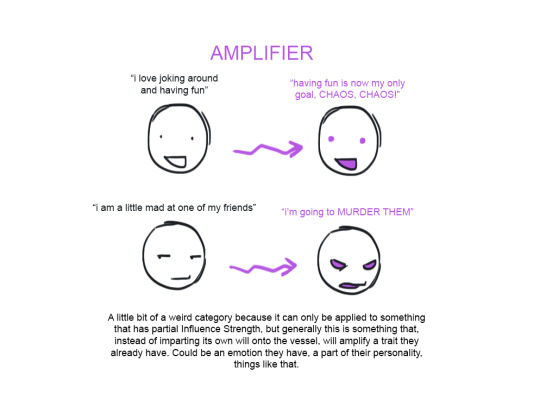
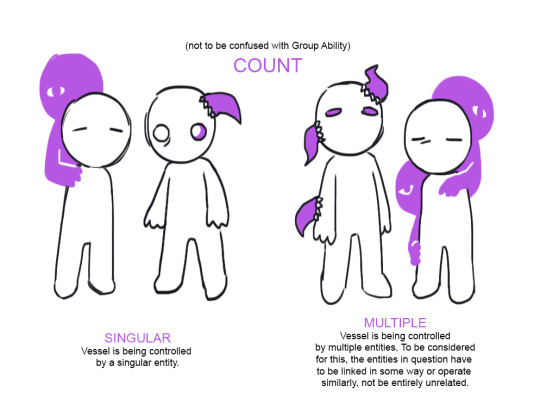
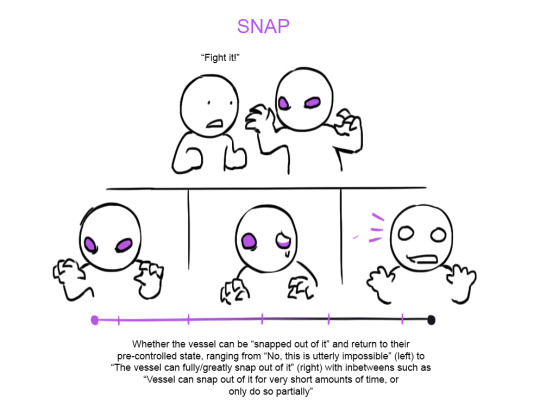
Hello i'm a normal person here's some stuff i drew to illustrate different traits different "person getting controlled" tropes can have
62K notes
·
View notes
Note
I may have thought your blog was my dash.
I may have started liking every single post so I could find them again.
I am so sorry 😅
Never apologize! Go for it. That's what this blog is for <3
11 notes
·
View notes
Photo
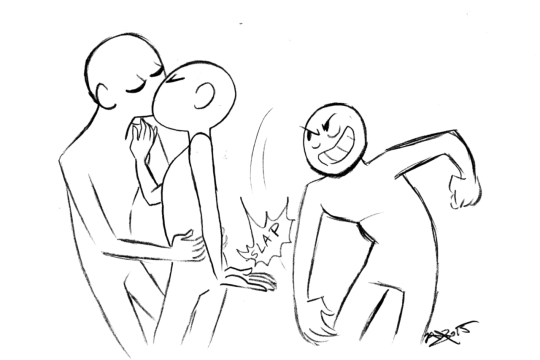
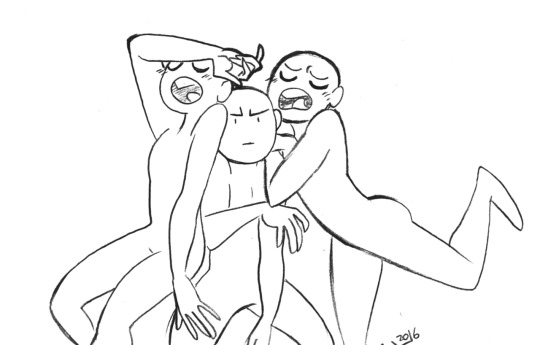
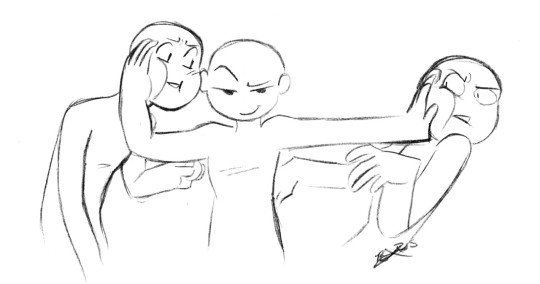
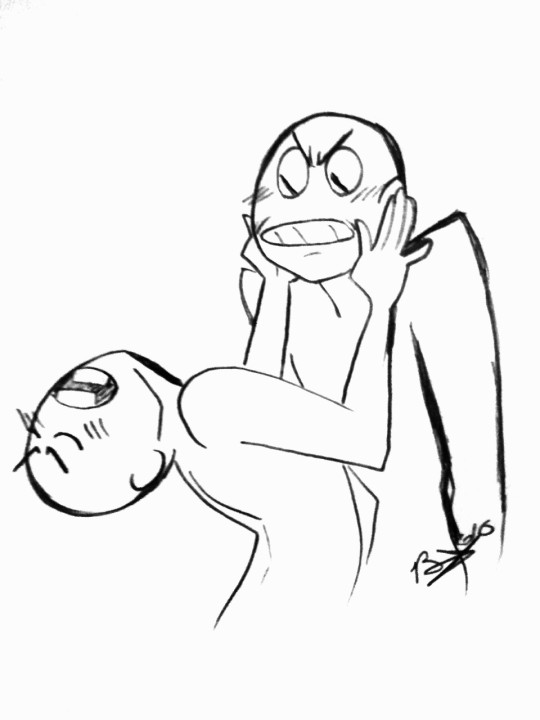
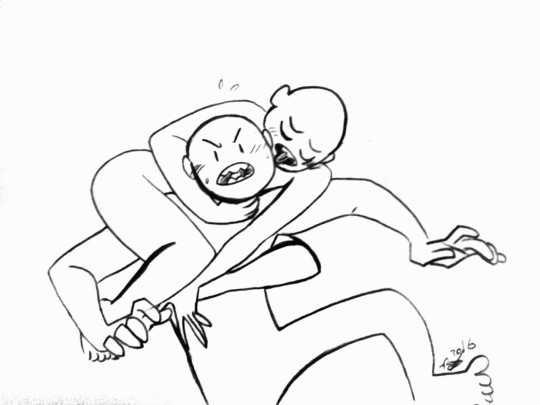
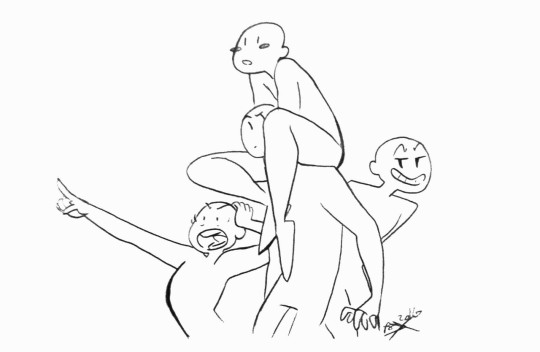
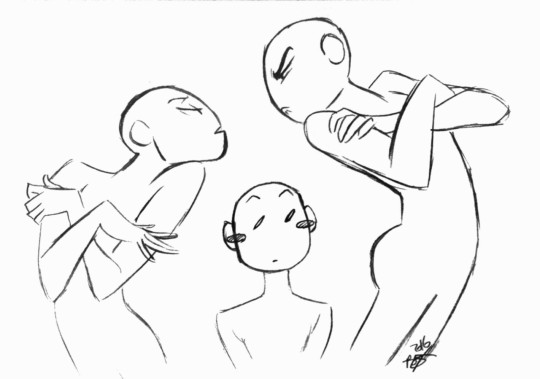
My “draw the squad” memes so far
495K notes
·
View notes
Text
Tips On How to Write Characters with Wings (For both fanfic writers and original content writers)

So I’ve been reading a lot of fics lately where people are either
A) Putting wings onto canon characters
B) Making OCs with wings
So I decided that, with the influx of people who are writing winged characters (and therefore the influx of errors that come with writing winged characters), I’d make a little thing to help you slap a pair of wings onto anyone!
This is also a bit personal, too, because the MC in my upcoming novel has wings!
1. Know that there are a lot of types of wings to choose from

Part of being a writer is the desire to take something (whether it be a pre-existing work or an idea in your head) and make it into your own. So, instead of just going with the classic bird wings, why not spice it up a bit? If your character is an angel, you certainly don’t have to stick to the classic depictions of angel wings. Why not give them butterfly wings or dragonfly wings?
Here’s a small list of different types of wings to choose from:
Bat wings
Beetle wings
Bird wings
Butterfly/Moth wings
Dragonfly wings
Note that these wings are for animals who can fly. There are also animals who can “fly” that actually glide, such as sugar gliders and flying squirrels.
Yeah, so the options are pretty limited, but feel free to make up your own kinds of wings that aren’t necessarily based on a pre-existing creature’s wings!
2. Be familiar with the anatomy of your character’s wings and their limits

If your wings are completely unique, draw them out. A diagram or picture is key when it comes to things like description. I’m not gonna tell you what everything does and give you Animal Wing Anatomy 101, that’s for you to research. Know that there are different types of wings and that they have different uses, strengths, and weaknesses.
3. Never use the full extent of your research!

Surprise, surprise!
“But wait, Maddy!” you cry, writing utensil in hand and poised to stab me. “I thought we were supposed to were supposed to show our research!”
Well, you are. Technically that’s not wrong. But, readers don’t want to know ALL of it. Over-described wings are sometimes worse than under-described wings; what sucks more than not knowing what a character’s wings look like is having to look up wing anatomy in the middle of the chapter!
Only use the most basic of vocabulary when it comes to describing the parts of the wing. Most of the time, you just have to say “bat wing” or “feathery wing” and the readers get the basic idea. (Like seriously, do you think the readers know what a dactylopatagium brevis is????? It’s a part of skin on a bat’s wing btw)
4. Don’t bring your character’s wings up only when they’re needed!!!!

Unless your character’s wings can fade away when they’re not needed, wings are a 100% real, 24/7 thing! It’s bothersome when writers mention the wings in one chapter and then only bring them up when there’s a daring escape that needs to be performed! Most of the time, I forget that the characters even have wings at all!
There is also the fact that wings aren’t all pros and no cons. If they’re functional, they’re probably big, and if they’re muscular, they’re probably bulky. If your character is clumsy, they’ll probably knock things over constantly, and if they’re not clumsy, they’ll still knock things over constantly.
Your wings are two (or four, or five, or six quintillion) extra appendages; they’re a part of your character! You don’t have to spend every second reminding the readers that they’re there, but don’t go long stretches of time without even mentioning them.
5. Your character’s wings can be a good way to indicate their mood or to provide for that little bit of description that you think you make be lacking
Why wouldn’t you want to describe the wings? I mean, you don’t want to describe every minute detail over and over again, but it’ll boost your word count a lot more than you think. They can also be used to convey your character’s feelings without explicitly telling the reader! It’s like a new set of facial expressions!
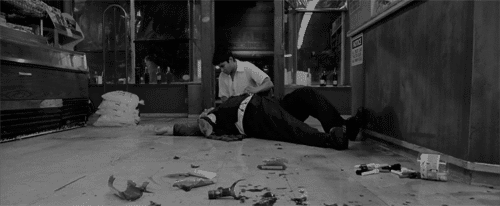
See? You can tell he’s wary and ready to fight from the movement of his wings! Also he’s crouching next to a dead body but that’s not relevant right now
Here’s a list of wing language (?) that you can incorporate into your story that will not only increase your word count, but will also add to the sustenance of your story!
Nervous
Twitch
Flutter
Ripple
Fold tightly
Fidget
Flap
Angry
Flare
Bristle
Fluff up
Ripple
Beat
Raise up
Snap open
Happy
Flutter
Curl up
Ripple
Wave
Flap
During Battle
Bludgeon
Smack
Bat
Clout
Whack
Kick someone’s legs out from under them
Snap someones neck (only for muscular wings like bat and bird wings)
Problems that may come with having wings
Poke out from under blankets and let all of the cold air in
Stepped on
Get pins and needles from being folded for too long
Squashed on chairs/ in beds/ in crowded hallways
Vulnerable in battle
Molting (for bird wings)
Hope this helped!!!
44K notes
·
View notes
Text
Bruises and Bruising
WORDS
“Where did you get those?”
“Is that…. somebody’s hand?”
“Is that… a bootprint?”
“It’ll look worse before it looks better.”
“Come on. Let’s get it wrapped up.”
“Do you want some painkillers?”
“Let me guess, I should ‘see the other guy’?”
“How’d you get a black eye?”
“I know you don’t do it on purpose, but I wish you’d stop coming home bruised.”
“I like the new look. It suits you.”
“Ouch, that looks like it hurts.”
“Talk to me.”
“You shouldn’t end up with bruises because you disagree with them. You know that, right?”
“Will you tell me how it happened?”
“Come and sit with me.”
ACTIONS
(send ‘+reverse’ to reverse the roles, or specify which muse is which!)
[sit] – sender comes and sits next to a bruised receiver. no words, just warmth.
[care] – sender provides physical care for receiver’s bruises (ice pack, wrapping them up, etc)
[shower] – sender takes one look at a bruised and bloody receiver, and goes to run them a shower. hot showers fix everything.
[offer] – sender has something they know receiver will want, and because receiver has had a bad enough day as it is, sender gives it to them. it’s the little things.
[stay] – sender offers receiver a place to stay, so that – wherever they got these bruises – they don’t have to go back.
[concussion] – sender checks receiver for a concussion, because it’s very possible receiver has one.
[home] – sender has no physical way of helping receiver out of this situation, but they offer out their hand anyway. just to hold onto (and to not let go).
7K notes
·
View notes
Text
hey writers! OneLook Thesaurus lets you find that word you can’t think of but can describe! go check it out!
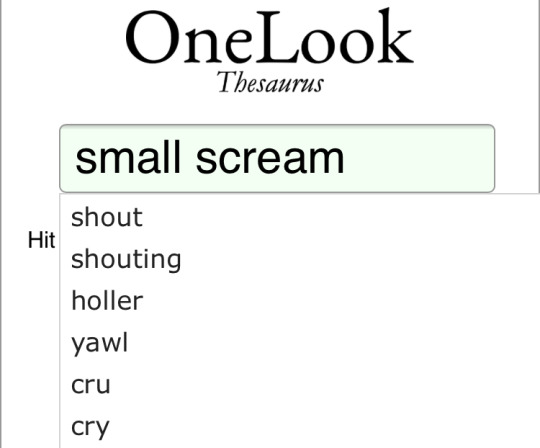

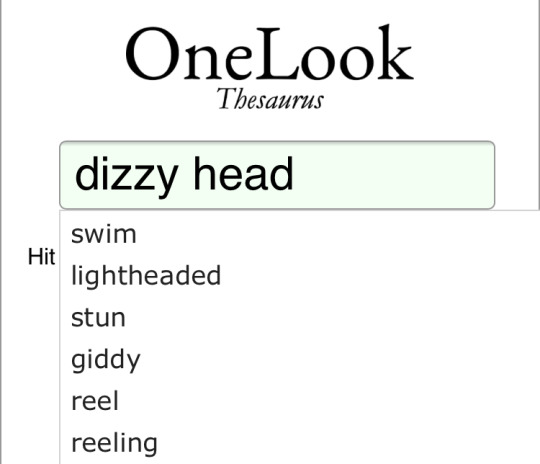
88K notes
·
View notes
Text
AU prompts: masterlist of lists
Okay so if you’re anything like me you see those lists of au ideas floating around and you like them but when it comes time to write something and you need an idea you have no idea what you tagged them as or if they’re buried somewhere in your likes so….have a list of some of the ones I’ve come across! This is updated with new lists and fixed links fairly frequently so check back here if you’d like more!
also: there are a few lists that people have requested that i have not been able to find so if you know of one/write one, please send it to me. my messages/ask/submit are all open. WANTED: expectant parents/parents with newborns aus, historical aus
(updated on november 6th, 2016)
(current count: ~163 lists + 39 individual prompts)
themed:
super long list of college aus
more college aus
even more college aus
autumn aus
it’s really cold outside aus
meet-ugly
art school aus
femslash aus
they know each other but don’t know that they know each other aus
awkward first meeting aus
MORE college aus
airport related aus
fake married/dating trope
pub aus (here for halloween season)
royal aus
assassin aus
opposites attract
lots more under the cut, the post was getting unwieldy
Keep reading
92K notes
·
View notes
Photo

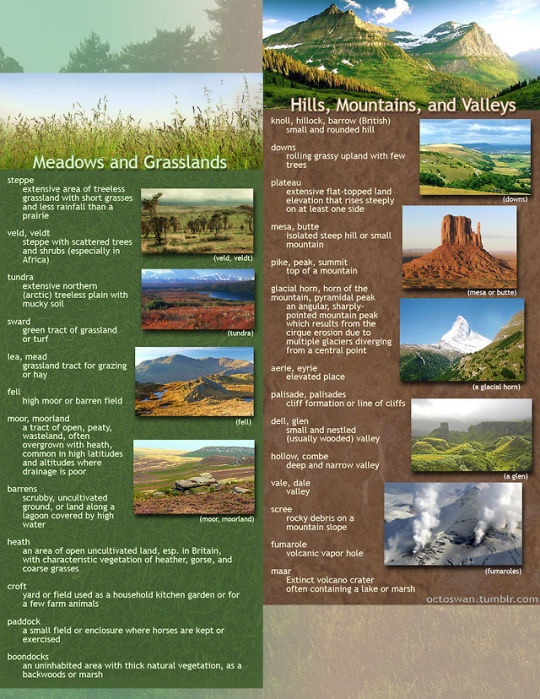

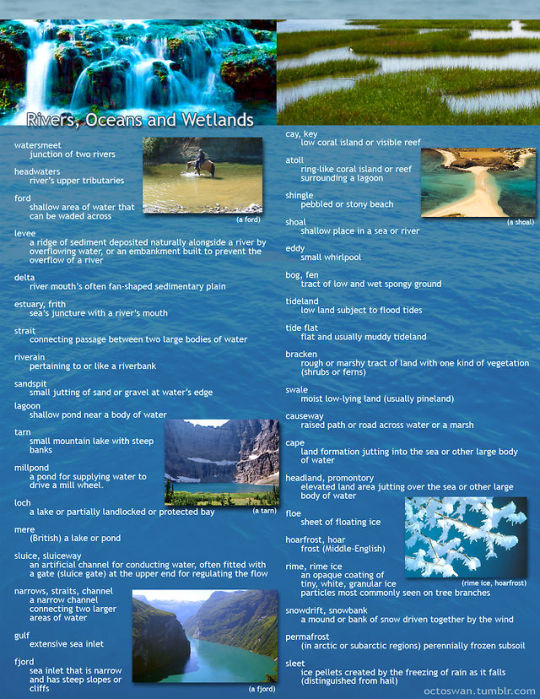

I made these as a way to compile all the geographical vocabulary that I thought was useful and interesting for writers. Some descriptors share categories, and some are simplified, but for the most part everything is in its proper place. Not all the words are as useable as others, and some might take tricky wording to pull off, but I hope these prove useful to all you writers out there!
(save the images to zoom in on the pics)
215K notes
·
View notes
Text
Writing advice from my uni teachers:
If your dialog feels flat, rewrite the scene pretending the characters cannot at any cost say exactly what they mean. No one says “I’m mad” but they can say it in 100 other ways.
Wrote a chapter but you dislike it? Rewrite it again from memory. That way you’re only remembering the main parts and can fill in extra details. My teacher who was a playwright literally writes every single script twice because of this.
Don’t overuse metaphors, or they lose their potency. Limit yourself.
Before you write your novel, write a page of anything from your characters POV so you can get their voice right. Do this for every main character introduced.
232K notes
·
View notes
Text
Hey here are some small tips and tidbits from a bartender so y'all can write some realistic bartender aus!
believe it or not we drink on the job, it's rude to decline a drink offered to you by a customer
yes. I've gotten drunk on the job. yes it was cause I was bought a number of jagerbombs. no I didn't go home or fuck up.
'kiss the bartender' is a popular dare at small bars and private functions. whether it's on the cheek or on the lips is totally up to you
I have been offered people's number in a variety of ways. sometimes I've been handed a note, other times I've just been handed someone's phone on the 'add a new contact' page. girls are more direct, guys try the subtler approach of flirting until declined
Your average bartender doesn't always know cocktails. Especially if they're not on the menu.
Y'all cocktails are potent. If your character is downing ten long Island iced teas they're going to hospital
we live for tips. You could be the biggest cunt in the world but if tip me a fiver I'll put on a fake af smile and pretend you're a sound guy
speaking of. Young people tend to buy you drinks, older people tend to tip you.
There's a number of bar calls we use. 86 means we're out of stock. 68 means we're back in stock. More relevant for fic writers however: 700 means a hot customer, usually aimed at women but can be used for guys too. eg. 'lady in red. 700'
If someone asks what 700 means when asked. We lie through our teeth. We usually say it means you need serving or you look drunk.
That's all I can think of right now. But if you have any questions send me an ask! I've been a bartender for a while now, so I like to think I know my stuff.
31K notes
·
View notes
Photo
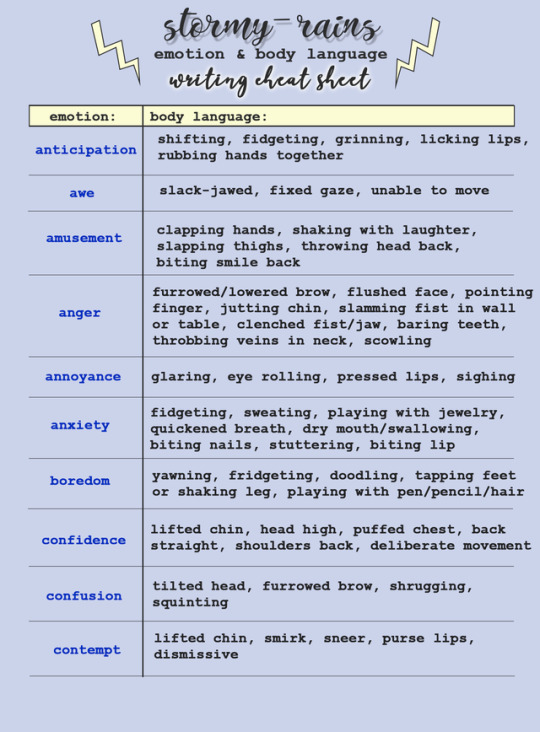
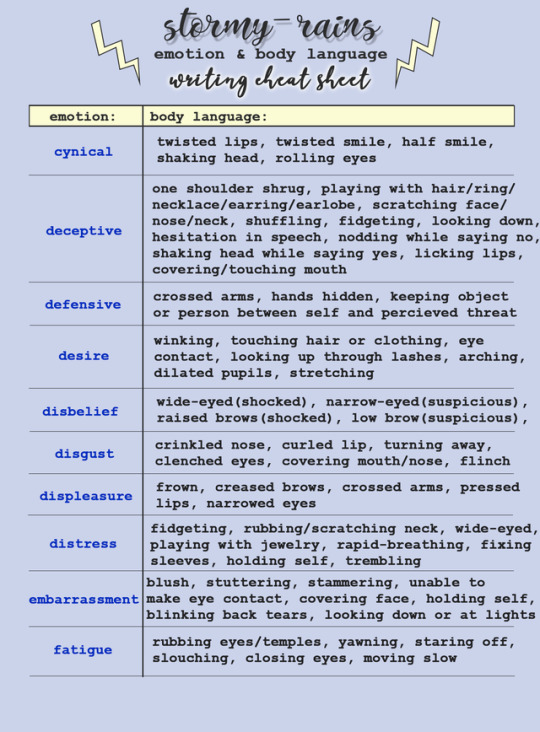
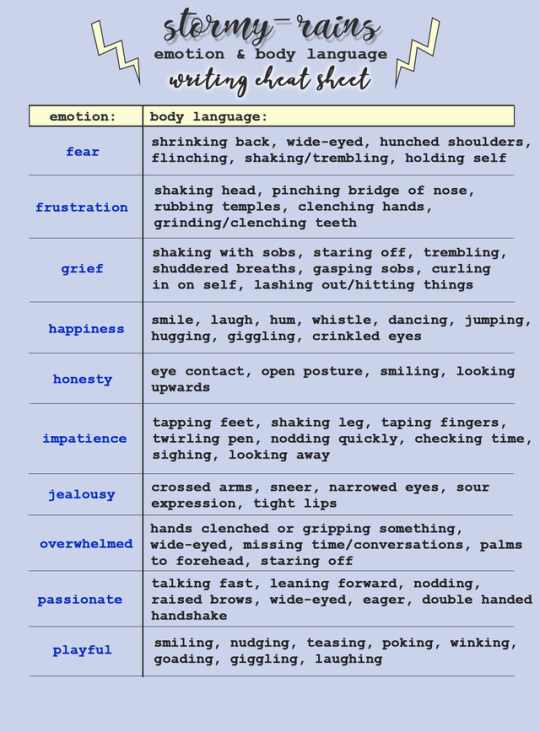

A Writing Cheat Sheet: for linking actions with emotions.
As always, click for HD.
53K notes
·
View notes
Text
ABCs of your OCs
a list of oc questions in alphabetical categories - i made each category based on the first word I could think of in alphabetical order, so enjoy!
A: Aptitude 1. what are your oc’s natural abilities, things they’ve been doing since young? 2. what activities have they participated in? 3. what abilities do they have that they’ve worked for? 4. what things are they bad at? 5. what is their most impressive talent?
B: Basics 1. what is their hair color? 2. what is their eye color? 3. how tall are they? 4. how old are they? 5. how much do they weigh?
C: Comfort 1. how do they sit in a chair? 2. in what position do they sleep? 3. what is their ideal comfort day? 4. what is their major comfort food? why? 5. who is the best at comforting them when down?
D: Decoration 1. how would they decorate a house if they had one under their name? 2. how would they decorate their child’s room? 3. how do they decorate their own room? 4. what type of clothes and accessories do they wear? 5. do they like makeup/nail/beauty trends?
E: External Personality 1. does the way they do things portray their internal personality? 2. do they do things that conform to the norm? 3. do they follow trends or do their own thing? 4. are they up-to-date on the internet fads? 5. do they portray their personality intentionally or let people figure it out on their own?
F: Fun 1. what do they do for fun? 2. what is their ideal party? 3. who would they have the most fun with? 4. can they have fun while conforming to rules? 5. do they go out a lot?
G: Gorgeous 1. what is their most attractive external feature? 2. what is the most attractive part of their personality? 3. what benefits come with being their friend? 4. what parts of them do they like and dislike? 5. what parts of others do they envy?
H: Heat 1. do they rather a hot or cold room? 2. do they prefer summer or winter? 3. do they like the snow? 4. do they have a favorite summer activity? 5. do they have a favorite winter activity?
I: In-the-closet 1. what is their sexuality? 2. have they ever questioned their sexuality? 3. have they ever questioned their gender? 4. would/was their family be okay with them being LGBT? 5. how long would/did it take for them to come out?
J: Joy 1. what makes them happy? 2. who makes them happy? 3. are there any songs that bring them joy? 4. are they happy often? 5. what brings them the most joy in the world?
K: Kill 1. have they ever thought about suicide? 2. have they ever thought about homicide? 3. if they could kill anyone without punishment, would they? who? 4. who would miss them if they died? 5. who would be happy they died, anyone?
L: Lemons 1. what is their favorite fruit? 2. what is their least favorite fruit? 3. are there any foods they hate? 4. do they have any food intolerances? 5. what is their favorite food?
M: Maternal 1. would they want a daughter or a son? 2. how many children do they want? 3. would they be a good parent? 4. what would they name a son? what would they name a daughter? 5. would they adopt?
N: Never Have I Ever 1. what would they never do? 2. what have they never done that they want to do? 3. is there anything they absolutely can’t believe people do? 4. what is the most embarrassing thing they’ve done? 5. have they done anything they thought they’d never do?
O: Optimism 1. are they optimistic or pessimistic? 2. are they openly optimistic, throwing it on others? 3. are they good at giving advice? 4. is there anyone in their life that throws optimism on them? 5. were they always optimistic?
P: Personality 1. what is their best personality trait? 2. what is their worst personality trait? 3. what of their personality do others love? 4. what of their personality do others envy? 5. do they hate anything about their personality/about other’s personalities?
Q: Questions 1. do they ask for help? 2. do they ask questions in class? 3. do they answer questions that make them a little uncomfortable? 4. do they ask weird questions? 5. are they curious?
R: Rules 1. do they follow rules? 2. would they be a strict or laid-back parent? 3. have they ever been consequenced for breaking a rule? 4. have they broken any rules they now regret breaking? 5. do they find any rules they/others follow absolutely ridiculous?
S: Streets 1. are they street-smart? 2. would they give money to someone on the streets? 3. have they ever gotten in a fight on the streets? 4. has anything happened to them on the streets? 5. are they cautious when out?
T: Truth 1. are they honest? 2. can they tell if someone is lying? 3. is it obvious when they’re lying? 4. have they lied about anything they regret lying about? 5. have they told truths that have been spread against their will?
U: Underdog 1. have they been bullied? 2. have they bullied anyone? 3. have they been physically attacked by a bully? 4. have they ever been doubted? 5. have they surprised people with being good at something?
V: Vomit 1. do they vomit often? 2. do they get lots of stomach aches? 3. are they good at comforting someone ill? 4. what do they like as far as comfort goes? 5. do they burp, cough, or hiccup most when nauseous? when vomiting?
W: Water 1. do they drink enough water? 2. have they learned to swim? 3. do they like to swim? 4. can they dive? 5. can they swim without holding their nose?
X: Xylophone 1. what is their favorite genre of music? 2. do they have a favorite song? 3. do they have a favorite band/artist/singer? 4. can they sing well? 5. can they rap?
Y: You 1. how old were you when you created them? 2. what inspired you to create them? 3. were they different when they were first created? 4. do you enjoy writing them more than other characters? 5. what’s your favorite thing about them?
Z: Zebra 1. what’s their favorite animal? 2. do they like animals? 3. cats or dogs? 4. what’s their dream pet? 5. do they have any pets at the moment?
44K notes
·
View notes
Text
Open up your manuscript.
Search for “there is” or “there was.”
Find all the description or action that starts with “there” and change it.
“There is a strike of lightning” becomes “lightning strikes the sky.”
“There is panic building in his chest” becomes “panic builds in his chest.”
Helps declump the writing
16K notes
·
View notes